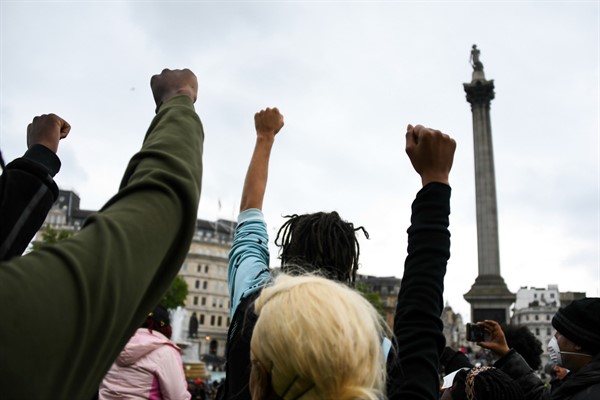In the past month, the mass protests for racial justice that were prompted by the killing of George Floyd by police in Minneapolis on May 25 have spread rapidly around the world. From the United Kingdom to Senegal to Japan, millions of people have taken to the streets to demand that the U.S. finally address its racial inequalities and the violent behavior of its police—and to decry local manifestations of injustice closer to home.
By now, this pattern looks familiar. Protests in Tunisia in 2010 and 2011, prompted by the self-immolation of street vendor Mohamed Bouazizi, set off a wave of anti-authoritarian uprisings across the Arab world. And the Occupy Wall Street protests in New York in 2011 were quickly emulated in thousands of cities across the world. They also inspired subsequent protest movements in other countries that sought to “occupy” public spaces, from central Hong Kong to Independence Square in Kyiv, Ukraine. Other demonstrations, like the school strikes led by Swedish climate activist Greta Thunberg, have been slower to build but just as far-reaching. Last September’s climate strikes drew 6 million participants globally.
Civil resistance is on the rise. According to Erica Chenoweth, a political scientist at Harvard University and a leading scholar on nonviolence, the number of mass protests has increased every year since the end of World War II. Last year’s demonstrations—in Hong Kong, Sudan, Algeria, Bolivia, Chile, Lebanon and Iraq, to name just a few—may have constituted “the largest wave of nonviolent mass movements in world history,” Chenoweth wrote in The Washington Post last November.

